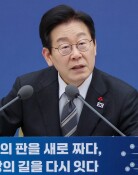Trump signals contact with Kim: Is Seoul informed?
Trump signals contact with Kim: Is Seoul informed?
Posted April. 02, 2025 07:56,
Updated April. 02, 2025 07:56
U.S. President Donald Trump stated, “We are in communication, and that’s very important,” referring to North Korean leader Kim Jong Un. He added, “At some point, I will do something. He is a big nuclear nation.” This remark was made at the White House on the 31st of last month, when reporters asked whether he planned to reach out to Kim soon. Trump responded affirmatively.
Trump’s reference to “communication” goes beyond his previous statements that emphasized personal rapport or intentions to make contact. From declaring on his first day in office that Kim would welcome his return, to repeatedly expressing willingness to engage, Trump implies that some form of contact may already be underway. His remark about “doing something” further suggests a more proactive stance on negotiations.
For Trump, who has publicly called his relationship with Kim a strategic asset, the resumption of U.S.–North Korea nuclear talks remains a readily available diplomatic card. Considering the 27 personal letters exchanged between the two leaders—many of which were undisclosed at the time—it’s not implausible that confidential communication is already in progress. If Trump, eager to resolve the war in Ukraine, proposes a “small deal” with North Korea, such as a freeze on its nuclear program in exchange for halting support for Russia, the Korean Peninsula could face a wholly new strategic landscape.
From South Korea’s standpoint, such developments add another layer of uncertainty, especially amid rising tensions over trade tariffs, potential U.S. troop realignment, and increased defense cost-sharing demands. The possibility of a direct U.S.–North Korea nuclear deal raises concerns of Seoul being sidelined. Yet the South Korean government’s response was limited to a general statement that it would “welcome any move that helps North Korea’s denuclearization.” It remains unclear whether Seoul is even aware of the level of U.S.–North Korea contact, if any exists. To avoid being treated as a third party on issues vital to national security, the government must mobilize all diplomatic channels to ensure clear communication with Washington.







